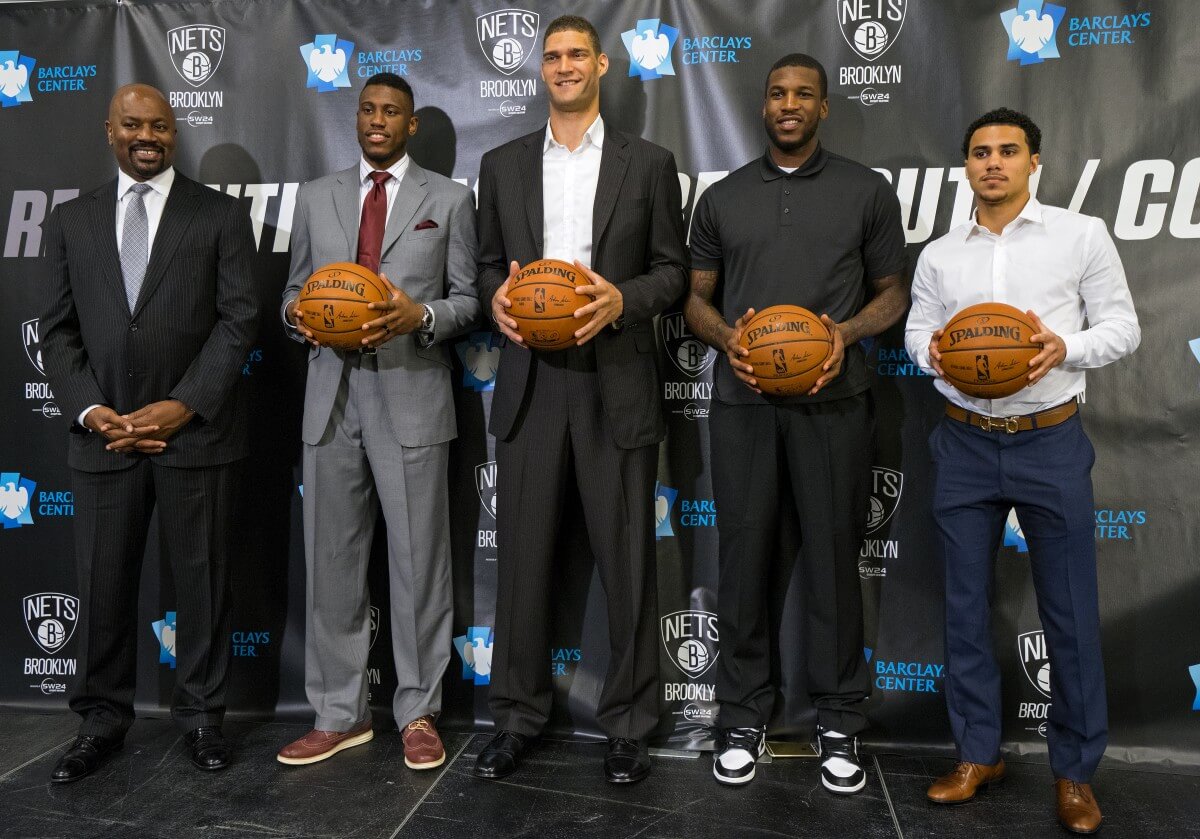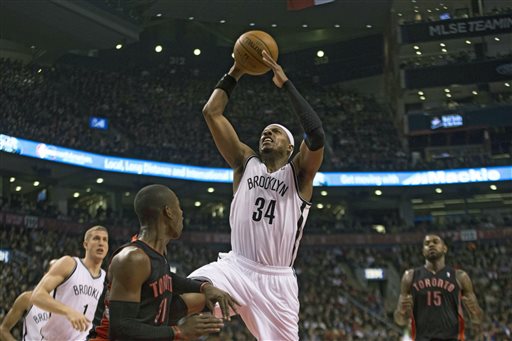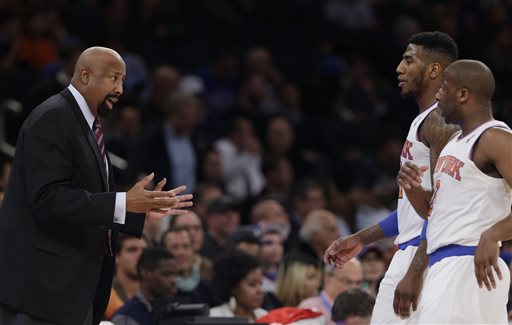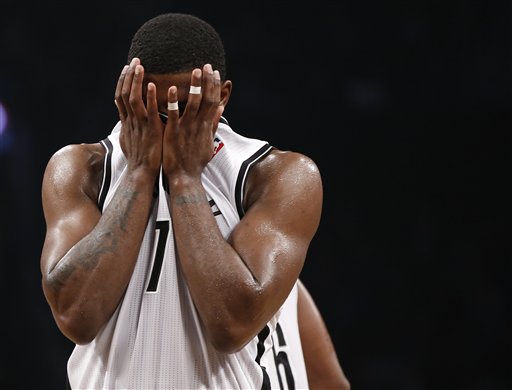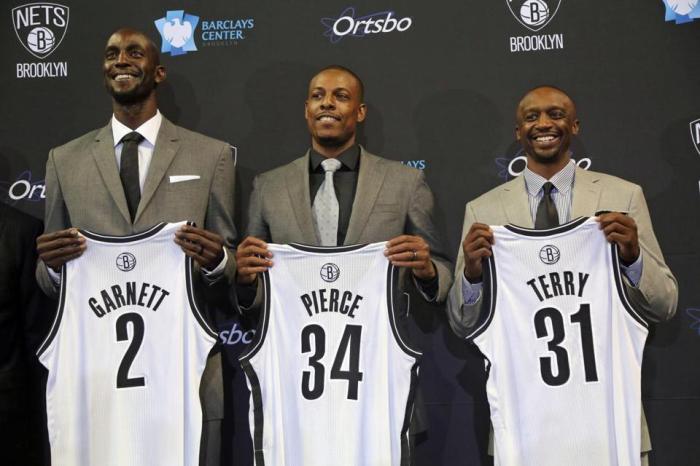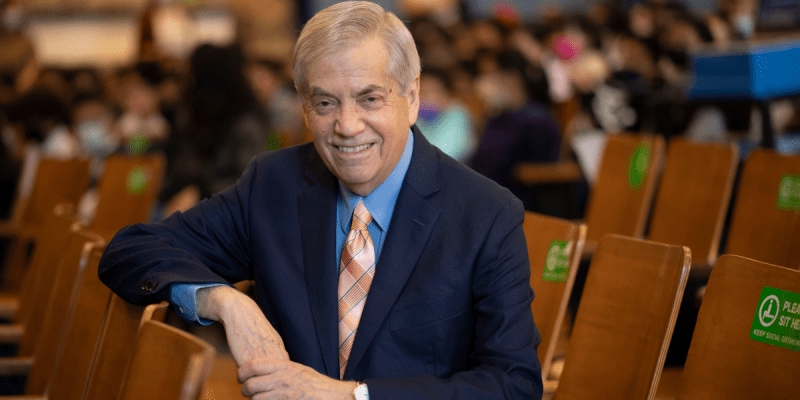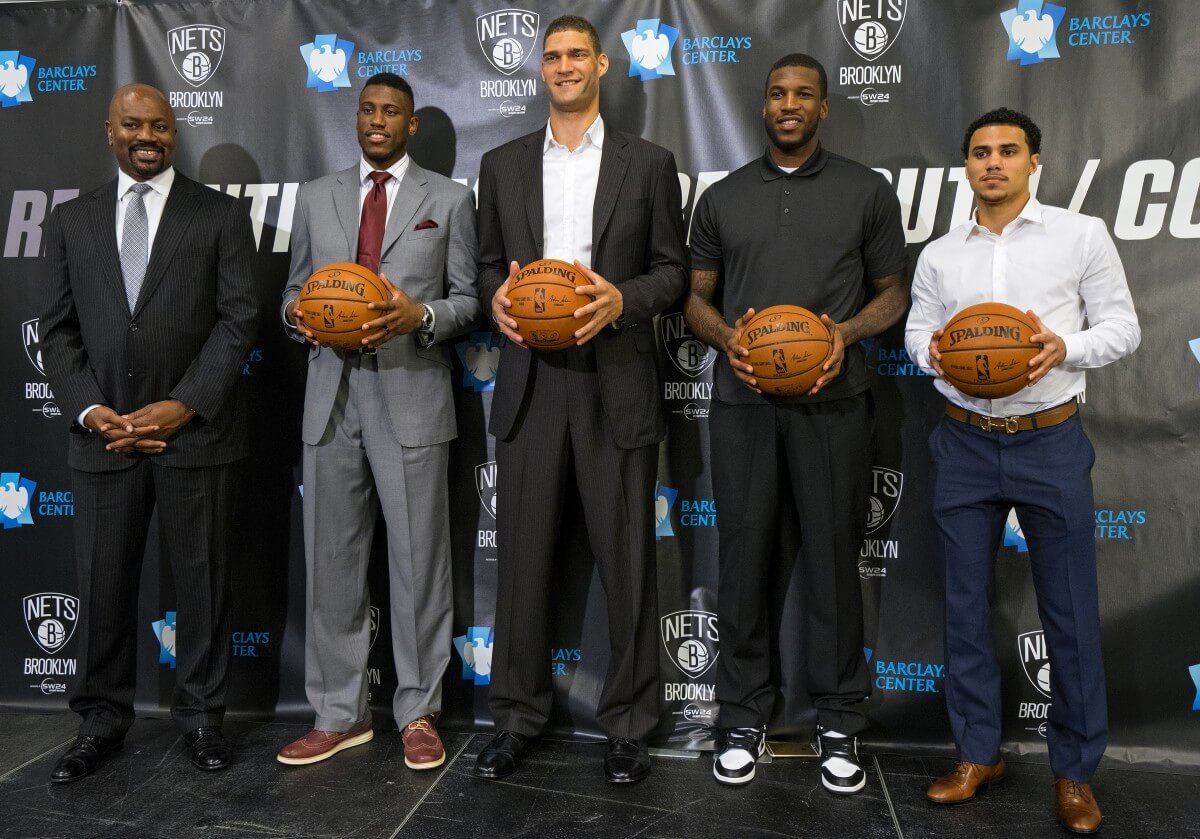
Despite Mikhail Prokhorov’s overtures, the Brooklyn Nets got worse this offseason. The gulf from Deron Williams to Jarrett Jack is massive unless Jack takes an unprecedented leap forward in impact at 31 years old, and Jack’s new role as Brook Lopez’s chef & waiter will test a guard who averaged a career-high 3.1 turnovers per 36 minutes last year. The majority of their free agent signings are talented but underperforming journeymen looking to find their NBA niche. The bench lacks shooting and rim protection, and the returning core is of a 38-win team in the Eastern Conference.
The team also lacks the reward incentive to tank, as they have no control over any of their own draft picks — second-rounders included — until 2019, with this year’s first-rounder going unprotected to the Boston Celtics.
But the Nets have been uninspiring and listless in recent years, and much of that had to do with Williams’s uneasy, waning relationship with the franchise and his role at the top. There was a fracture between player and organization that went well beyond routine disagreements, and Williams played out the season like someone who was ready to move on. Even if Jack doesn’t improve, his contract doesn’t extend beyond this year[note]He has a small guarantee — $500,000 — that the Nets would pay if they choose to waive him.[/note], and the Nets can hit the free agent market armed with max money looking for a replacement in 2016 free agency.
On the organization’s side, the team saw an opportunity to waive Williams and slip under the luxury tax, saving them close to $60 million this year alone in luxury tax payments and more likely around $40 million when all is said and done.[note]We can’t say exactly how much Prokhorov will re-line his pockets since we don’t know if any of Williams’s future stretched salary will count towards the luxury tax.[/note] The Nets did not want to pay that much money into salary and luxury tax for a declining player who wanted out, and every day Williams spent with the Nets would have only further strained that relationship until something snapped. Something needed to be done.
Prokhorov talked about a “shift in our approach,” and it’s true: it’s out with the old, in with the new. The average age of the players leaving the Nets this offseason was 28, while the average age of incoming players was 23.[note]To be fair: this includes non-guaranteed players like Ryan Boatright and Quincy Miller.[/note] The number of thirty-year-olds on Brooklyn’s opening-day roster in four years has gone from five to seven to six to two. For every outgoing player, the team brought in a younger or equal-age replacement at the same position.
Even their drafting style changed. After the team spent the last two NBA drafts looking for seniors — not including Paul Pierce & Kevin Garnett — the team picked up Rondae Hollis-Jefferson, Chris McCullough, and Juan Pablo Vaulet. That’s two 20-year olds and a 19-year-old, with only Hollis-Jefferson guaranteed to play next season.
Younger doesn’t mean better, just different. The Nets are banking on the idea that their low-risk, medium-reward gambits pay off in the long-term, moving from than their high-cost, high-reward moves of the past. They’ll be more athletic and make more highlight reels, but it’ll be difficult to watch in March if they’re well out of the playoff race and don’t have a high draft pick to slide towards.
Look, destroying and rebuilding is a long process. The Nets know that now. They tried to destroy & build a championship team overnight — well, over the course of two nights: July 3, 2012, when they re-signed Williams and traded for Joe Johnson; and June 27, 2013, when they agreed to a trade for Kevin Garnett and Paul Pierce. It famously failed, and the Nets were hit with both a record-setting tax bill & the tattered, aging remains of a playoff team as punishment.
This is Brooklyn’s current mess. They need to take steps to move forward, but the future they mortgaged limits the value or potential of those moves. They’re have to toe the line between having players who can compete now (Brook Lopez, Thaddeus Young, Joe Johnson), young talent that needs to develop (Rondae Hollis-Jefferson, Markel Brown, the injured Chris McCullough), and hoping that they can squeeze out at least one more Andray Blatche or Shaun Livingston-esque resurgence from a castoff (Thomas Robinson, Shane Larkin, Wayne Ellington, Andrea Bargnani), all without high draft picks.
That said, it could be interesting to watch.[note]I know, I know, that’s a huge compliment.[/note] Rondae Hollis-Jefferson is an exciting defensive talent with a big personality. Markel Brown has a lot of room to grow. Bojan Bogdanovic is primed to take a leap. Chris McCullough was considered a lottery talent, and if he develops, would be a steal at the 29th pick. There’s value in watching youth grow, and if Jack or Larkin develops a strong chemistry with Brook Lopez, he should win them a few games on his scoring alone.
The pressure is gone. Rather than seeing a team plopped into Brooklyn expected to compete, there’s a chance to watch some core players develop. After years of decline, it’s the path they needed to take.

